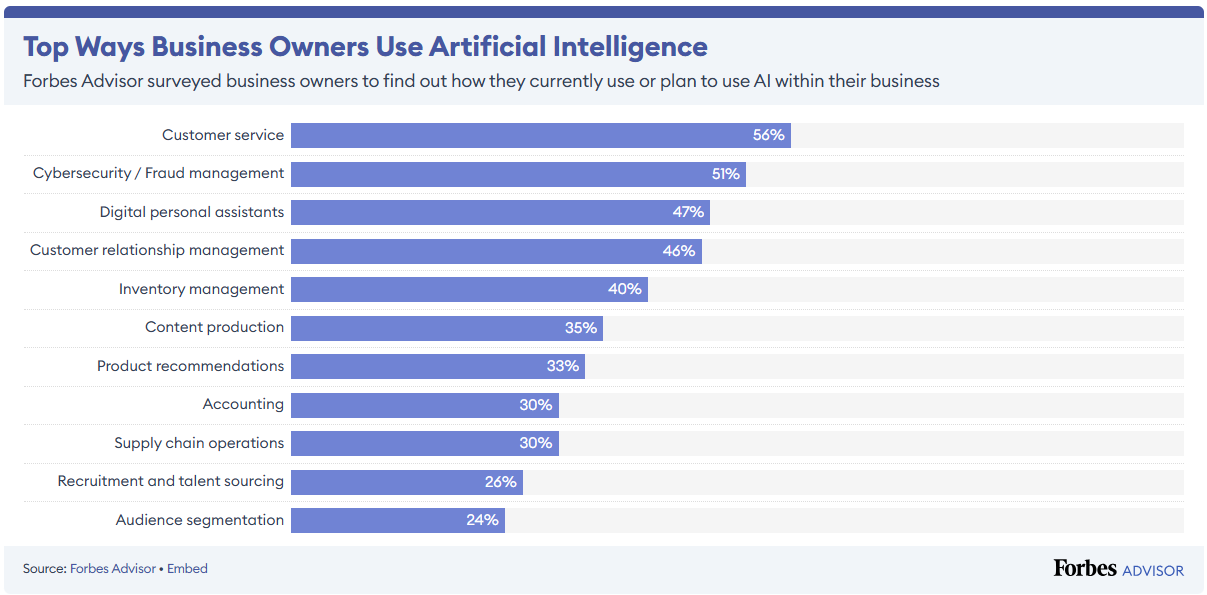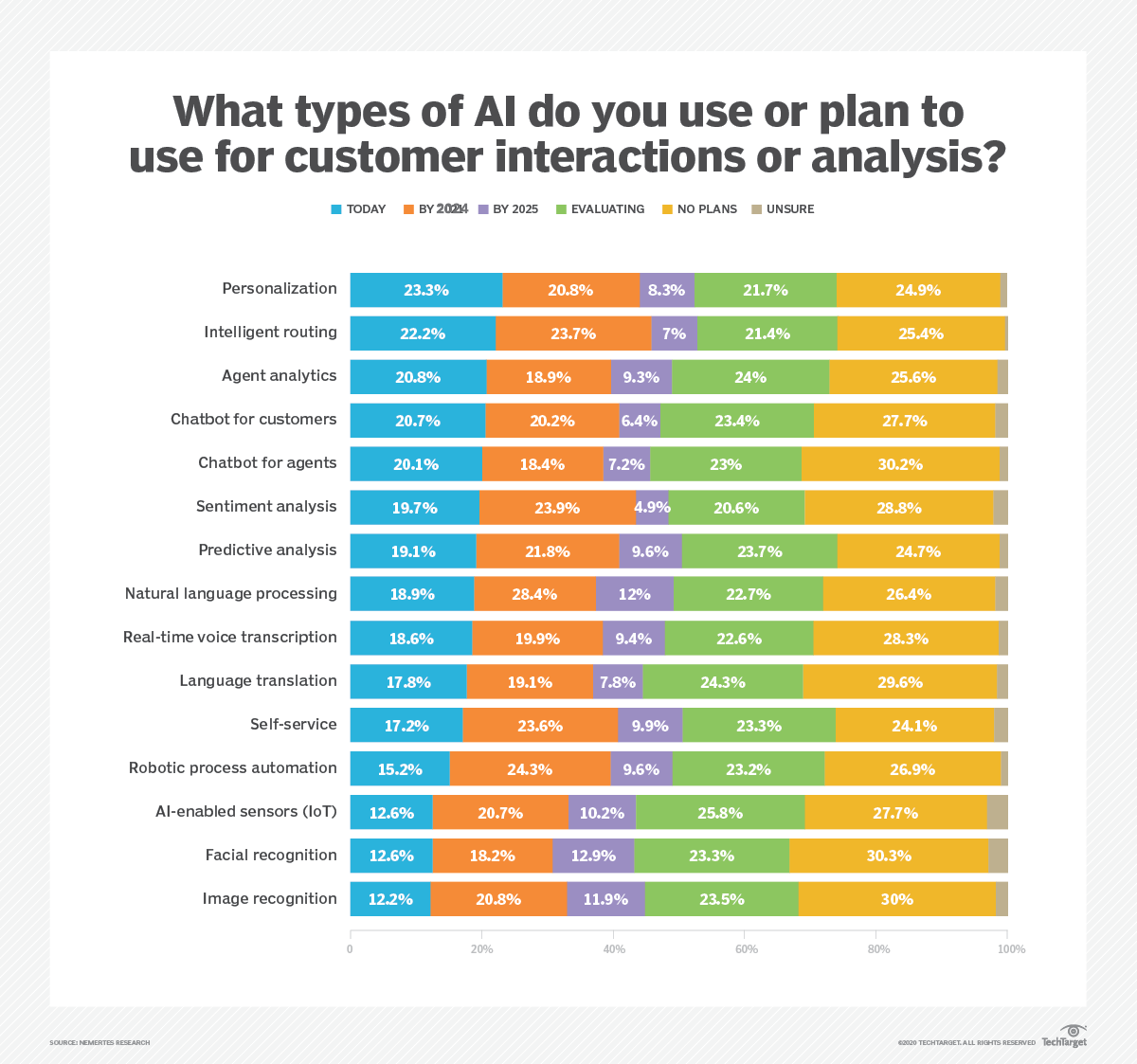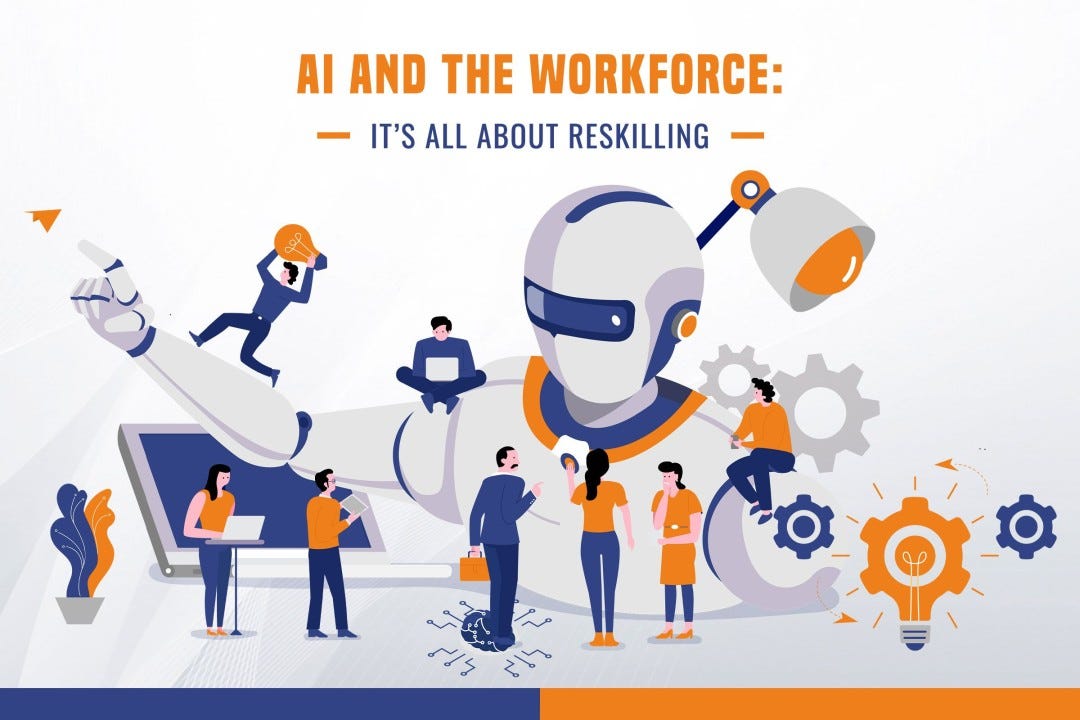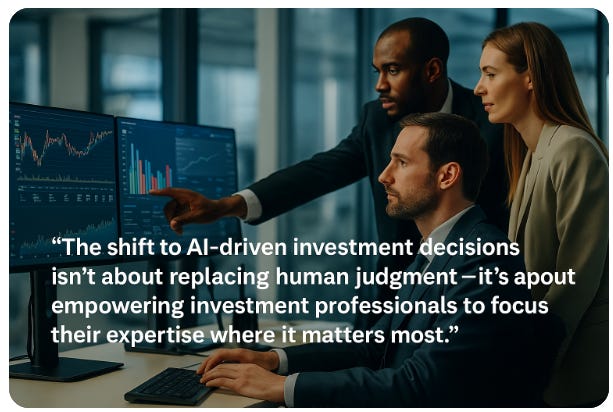Three Things Every Business Leader Should Be Doing with AI
(5 Min Read)
I recently spoke with two founders growing their companies—an eco-friendly hammock retailer and a creative toy maker. They shared stories about an unexpected new "employee" on their teams. This employee didn't occupy a desk or receive a salary; instead, it handled tedious tasks such as tracking inventory levels, answering customer inquiries, and analyzing marketing data. In reality, they had each "hired" an AI tool to lighten their workload.
The hammock seller used software that automatically monitored stock levels and extracted insights from customer reviews, indicating what shoppers liked or disliked. Meanwhile, the toy company's AI assistant wrote product descriptions and analyzed social media statistics for sales trends. Both owners were amazed at how much time and money these tools saved them—AI acted like an extra pair of hands, enabling their small teams to accomplish much more.
Their experiences highlight a significant trend: AI is no longer a luxury reserved for large companies, but a practical aide for businesses of all sizes.
Small and mid-sized businesses are rapidly jumping on the AI bandwagon. In 2023, roughly 36% of SMBs had invested in artificial intelligence; by the end of 2024, that number jumped to 42%.
This surge has been fueled by the buzz around accessible AI tools (like the sudden popularity of ChatGPT) and by the very real success stories of early adopters. The message is clear: AI isn’t just hype – it’s becoming a competitive necessity.
As a business leader, how can you leverage the AI wave? Start by focusing on tools that solve real problems—not chasing shiny technology/fads. The biggest mistake right now? Investing in AI without a clear use case or overcomplicating it. Instead, look for simple ways to save time, improve decision-making, or engage customers more effectively. Small wins can snowball into a significant impact. Here are three key strategies to focus on:
1. Streamline Operations and Save Time
One of the biggest immediate wins from AI is automating routine operations. Think about all the repetitive, time-consuming tasks that bog down your day – processing invoices, scheduling meetings, managing inventory, customer service triage, data entry, etc.
Those are precisely the kinds of jobs AI excels at. For instance, intelligent algorithms can reconcile your accounting records overnight or predict stock needs for next season by analyzing sales patterns. By handing off these tasks to AI, it’s as if you suddenly hired a few extra employees to work 24/7.
Small business owners/units report that adopting AI in their operations effectively does the work of about two full-time employees (plus another 1.5 part-timers) for them. Unsurprisingly, in one survey, 82% of SMBs said AI made their business more efficient.
Crucially, this isn’t just about cutting costs – it’s about freeing your real team to focus on higher-value work. Imagine your sales manager spends two hours a day manually pulling reports; with an AI tool generating those reports in seconds, that manager can now spend those two hours calling on new leads or improving the sales strategy. AI gives you back time.
Companies are using AI to automate everything from fraud detection to compliance paperwork, shrinking processes that once took days into mere minutes.
The bottom line is that streamlining operations with AI means a leaner, faster business that can do more with less and respond quickly to changes.
2. Engage and Understand Your Customers
Another game-changing application of AI is in enhancing customer engagement. Big firms have long used AI to personalize shopping experiences (like Amazon’s product recommendations), but now even modest-sized businesses can tap into these powers.
For example, AI-powered chatbots can handle common customer questions online at any hour, so your customers get help immediately instead of waiting for office hours. These virtual service agents can schedule appointments, track packages, answer FAQs, and more – all without a human being needed for the basic stuff.
That frees your staff to tackle the trickier customer issues that truly need a personal touch. It also keeps customers happier: 86% of businesses using AI say it lets them communicate with clients more frequently and effectively (think instant responses and follow-ups). I know we all have had our good and bad experiences with chat AI bots, but the capability is far ahead of even what it was a year ago.
In other words, AI can ensure no customer inquiry falls through the cracks.
But customer engagement isn’t only about speed – it’s also about insight. AI can sift through heaps of customer data to reveal patterns in what people buy, what they complain about, or what features they love.
With these insights, you can tailor your products or services to meet customer needs better. One retailer, for instance, uses an AI tool to analyze every new product review that comes in, automatically highlighting common suggestions and issues customers mention.
This helps the team quickly fix problems and double down on what’s working, leading to better reviews and repeat business. AI can also personalize marketing: even a simple algorithm can segment your customer list and send targeted offers (so your outdoorsy customers get camping gear promos while the urban customers get city-friendly products, for example).
All of this adds up to more engaged, loyal customers. People appreciate it when a business understands them and responds quickly – AI is helping companies do both at scale.
Remember, the best outcomes come when AI works with your team. Many companies using chatbots or AI text generators have a human review of essential messages or step in for complex cases, ensuring that the personal, human touch isn’t lost even as automation does its part.
3. Empower Your Team for Smarter Decisions
Lastly, AI can supercharge your decision-making – but only if your team is on board and up to speed. Modern AI tools are incredibly good at analyzing data and spotting trends that would be easy for a person to miss.
They can crunch sales numbers, market metrics, or operational data and instantaneously produce insights (like “hey, item X is selling faster in Denver this month, you should reorder sooner” or “factory output dips on rainy days, adjust staffing those days”).
Around 60% of companies report that AI has quickly improved their business decision-making by delivering key insights.
When leaders have better, data-driven information, they naturally make smarter calls (or at least one hopes so) on everything from pricing to marketing strategy. AI gives your team analytical superpowers, turning gut decisions into informed decisions backed by real-time evidence.
Tools alone won’t move the needle unless your people know how to use them. Investing in your workforce’s AI skills is critical. Right now, there’s a big gap in many organizations: even among companies already using AI, only about half have provided training to their employees on these tools.
Consequently, many workers feel uncertain about integrating AI into their jobs. Currently, only about one in three employees feels confident in their AI skills, and most of them likely assume it refers to using ChatGPT.
This represents a missed opportunity. Your sophisticated analytics platform will be ineffective if your analysts do not trust or comprehend its suggestions. The positive news is that employees directly experience the benefits when they receive training. In one study, 90% of workers who underwent AI training reported that it enhanced their job performance.
The takeaway for business leaders is clear: prioritize AI education and training. Start small by holding workshops on using that new AI software you adopted, or encourage a few team members to become your in-house experts who coach others.
Create a culture where experimenting with AI tools is encouraged (and not feared). If you empower your team to leverage AI, they’ll make better decisions and amplify what the technology can do for your company.
As one Microsoft report put it, AI has the potential to free employees from the drudgery of “information overload,” allowing them to focus on creative, strategic work instead, but only if we help them learn and adapt.
In short, pair human talent with AI insights, and you’ll get the best of both. Companies that treat AI as a collaborative tool for their people (rather than a replacement for them) will reap the most rewards.
Many employees who use AI at work agree it’s making them more productive and satisfied, but far fewer feel fully prepared to use it. In a recent survey, 73% of workers in AI-adopting companies said using AI tools has increased their productivity, and 60% said it improved their job satisfaction.
However, only 41% have actively prioritized learning how to use AI in their role, and the rest haven’t – which aligns with the finding that only about 37% of employees feel confident in their AI skills.
This highlights the need for training and a supportive learning culture to realize AI’s full benefits.
The Investor’s Perspective: AI as a Value Driver
These AI initiatives – streamlining operations, delighting customers, and enabling more intelligent decisions – don’t just improve day-to-day performance. They can also boost the long-term value of the business, which is something on the radar of private equity firms and investors.
Investors love efficient, growing companies, and AI helps organizations be precisely that. By systematically weaving AI into a company’s processes, businesses have been able to lower operating costs and increase revenues, directly improving profitability.
One analysis suggests that this leads to higher company valuations, as earnings improve and buyers are willing to pay a higher multiple for tech-enabled, future-ready companies.
In plain English: a company that’s efficiently run with AI might sell for a higher price than an otherwise identical company that hasn’t embraced these tools.
It’s telling that even private equity firms themselves are starting to use AI to guide their investment decisions. Deloitte predicts that within the next few years, roughly 25% of PE firms will use AI when valuing and evaluating potential acquisitions.
These investors are crunching data with AI to spot trends, assess risks, and find hidden opportunities in companies – a sign of how important they believe AI will be in driving growth.
This trend sends a clear message for business owners: demonstrating a strong AI strategy can be a real differentiator if you’re looking to attract investment or eventually sell your company.
It suggests to buyers that your business is poised for the future and not stuck in the past. Conversely, ignoring the AI movement could leave value on the table (or worse, make your company less competitive over time).
Conclusion
In summary, the principles remain consistent whether you operate a family business or manage a portfolio of companies. Utilize AI to streamline operations, engage with your customers, and empower your employees.
These are the three key areas where AI is currently making a significant impact. Start with small projects, learn from them, and then expand your efforts.
Companies are spreading themselves too thin by pursuing too many AI initiatives. Leading organizations prioritize depth over breadth, focusing on an average of 3.5 use cases, in contrast to 6.1 use cases for other companies. As a result, these leaders expect to achieve a return on investment (ROI) that is 2.1 times greater than that of their peers in their AI efforts.
The companies mentioned in the opening story viewed AI as a valuable partner, and this approach has resulted in improved efficiency, growth, and customer loyalty. Your business could be the next success story.
AI is here to stay, and leaders who adopt it thoughtfully will likely gain a competitive advantage in the future. What are your thoughts?
Next Week, I will focus on Critical Thinking, its importance, and even the impact of AI on such a skill.
Sources
Insights and data in this newsletter are drawn from publications and research, including:
McKinsey & Company – Global AI adoption and workforce impact studies
Salesforce & Deloitte – AI adoption in small to mid-sized businesses and private equity
Bain & Company – Generative AI use in deal sourcing and portfolio strategy
Business.com & RSPA – AI benefits for SMBs, including productivity, efficiency, and decision-making
World Economic Forum – Responsible AI frameworks and governance
Case Studies – Real-world applications from businesses like Axis Bank, CMY Cubes, and Nakie







